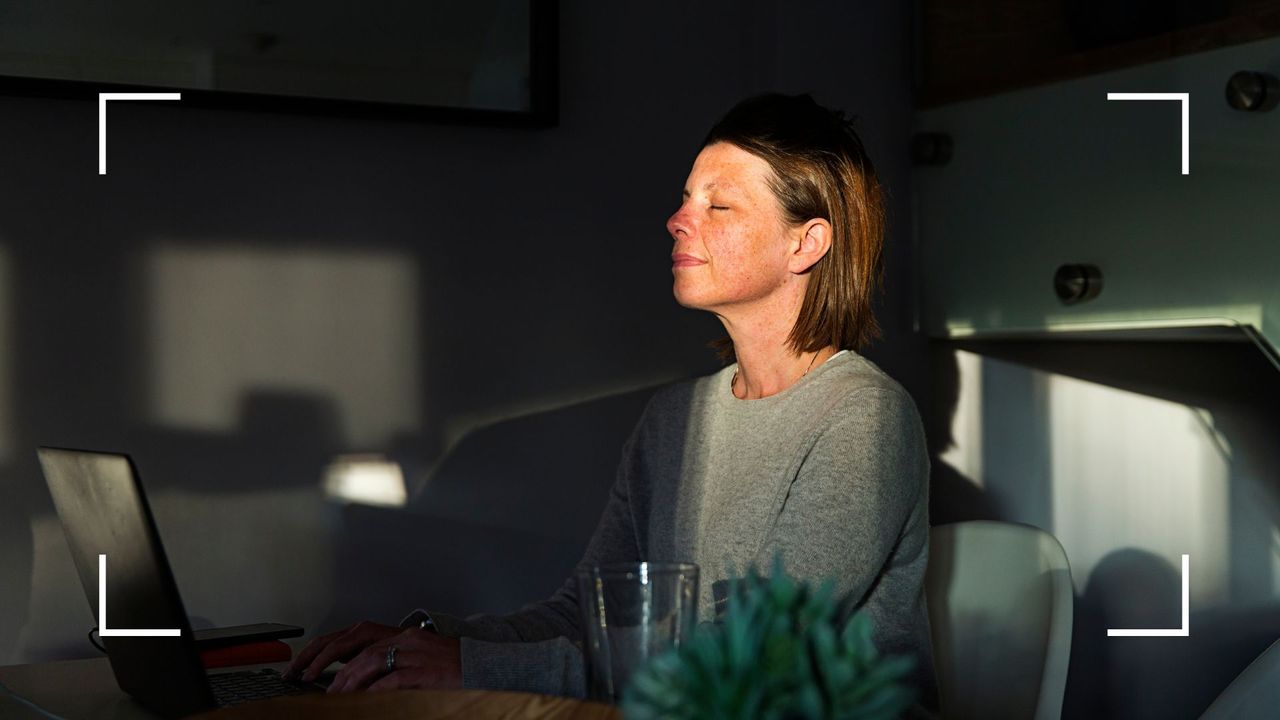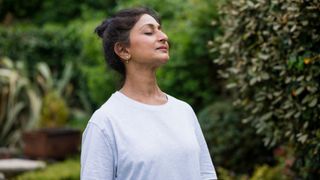What is Sophrology? Therapists reveal the benefits of this unique mindfulness technique
If you find it difficult to get in the zone with some mindfulness techniques, sophrology could be the hands-on answer to your problems


Sophrology is the perfect alternative if you struggle with the stillness of other mindfulness techniques, such as meditation. The skill uses breathing techniques, gentle movement, and visualisation practices to bring stress and minor anxieties under control.
The practice was created by Spanish neuropsychiatrist Professor Alfonso Caycedo in 1960 as a way to help depressed and traumatised patients in recovery without drugs or psychiatric treatment. While it began in the medical world as Professor Alfonso focused his attention on pre-and post-natal women, those with sleep disorders, and those in need of better pain management, it went on to become famous in the world of sports. In 1968, several Swiss skiers won medals in the Grenoble Olympic Games, crediting Sophrology for their intense mental preparation.
While Sophrology isn't recognised today as a suitable alternative to professional mental health aid, it's a useful practice for everything from learning how to deal with stress better to managing repetitive strain injury, boosting creativity, and helping with self-confidence. Want to try the technique for yourself? Here, woman&home speaks to two therapists and mindfulness practitioners to reveal what you need to know about this important alternative to meditation.
How does Sophrology work?
Sophrology is a mind-body technique that combines relaxation, gentle movement, breathing, and visualisation exercises, explains counsellor Jenny Warwick, making it ideal for those who find it difficult to remain completely still during meditation.
"You typically start in a comfortable position, sitting, standing or even lying down, and are guided through various exercises by a sophrologist," explains Warwick, who is also a member of Counselling Directory. "Relaxation exercises focus on your breathing and sensations in your body. Concentrating on maintaining deep, slow breaths helps you relax by calming your body and mind."
Gentle movements may include placing your fingertips on your temples, throat, chest, and stomach while you breathe deeply, nodding your head, shaking your head, and stretching.
The sophrologist will also take you through visualisation exercises that involve creating positive and peaceful images in your mind, the counsellor says.
Sign up for the woman&home newsletter
Sign up to our free daily email for the latest royal and entertainment news, interesting opinion, expert advice on styling and beauty trends, and no-nonsense guides to the health and wellness questions you want answered.
How do I practice Sophrology?
These exercises are typically completed in group sessions or one-to-one sessions, with schools of Sophrology placed around the world to help people get into the practice. For example, there are about 100 schools of Sophrology in France, although just a few in the UK. The Sophrology Academy is one of the best, with around 15 official teachers, with some free sessions available online via Zoom on their events page.
Sophrology sessions are completed normally in groups or one-to-one sessions. However, much like other mindfulness practices, there are various Sophrology apps among the best meditation apps that can be beneficial for those looking to practice this unique relaxation technique in the comfort of their own home, such as Insight Timer.
These techniques only require a couple of minutes daily, without any extra equipment, and you can do them anytime, anywhere.

Benefits of Sophrology
1. Helps to lower stress
The primary benefit of Sophrology is that it can help you learn to handle stress better. Whether you're dealing with minor social anxieties or burnout from work, the practice isn't a cure-all but a great technique to manage in-the-moment stressful situations.
"Sophrology can help to reduce your worries by teaching you how to relax your body and mind," explains Warwick. "For those struggling with stress-related conditions such as anxiety, depression, and insomnia, it can be hugely beneficial."
2. Enhanced body awareness
Sophrology puts a lot of emphasis on body sensations, which is where it differs from other mindfulness techniques. "Regularly practising it can make you more attuned to your body's needs, reactions, and even the subtlest of tensions," explains Phillipa Quigley, a holistic health coach. "This heightened awareness can lead to better understanding and management of physical stress or discomfort and, in some cases, even help in the release of stored emotions."
3. Can help build up your self-esteem
Looking to learn how to be more confident? With the benefit of reduced stress and a strong mind-body connection, Sophrology can certainly help you learn to be confident again - or build your confidence up from scratch.
"By focusing on your strength and accomplishments, Sophrology can help build your self-esteem too, making it easier to bounce back from difficult situations," says Warwick.
3. Helps you sleep better
It should come as no surprise that thanks to the benefits above, Sophrology can help you learn how to sleep better. According to research by Eulji University School of Medicine, stress is one of the primary causes of sleep issues such as insomnia, waking up early (when you don't want to), and nightmares.
"Practising Sophrology before bed makes you more likely to fall asleep fast and to sleep more soundly through the night," explains Warwick. "And when you sleep well, your overall functioning, concentration, and focus are improved."
What's the difference between yoga and Sophrology?
Yoga and Sophrology both focus on creating harmony between the mind and body - but they approach it in very different ways, says Quigley. "Yoga, stemming from ancient traditions, primarily focuses on postures (asanas), breathing techniques (pranayama), and meditation. It's as much a physical practice as it is mental."
Sophrology, on the other hand, leans more into the realm of the mind, emphasising positive visualization, body awareness, and relaxation techniques, she says. "While it does incorporate physical movements, they're usually more about tuning into body sensations than achieving specific postures. In essence, while they both share the same goal of holistic well-being, their paths are distinctively unique."
That being said, some of the best yoga apps that help users practice yoga every day or weekly regularly use Sophrology practices to either start the session off or bring the practice to a close.
What's the difference between mindfulness and Sophrology?
Mindfulness and Sophrology have more in common, so it's understandable why you might confuse the two. These are the key differences between the two, according to Warwick.
- Sophrology is a structured practice: "The main difference is that Sophrology is more structured than mindfulness, typically following a routine. Because of this, sophrology is often taught by a trained sophrologist," she says. "Mindfulness is more flexible and can be practised in various ways, depending on your preferences and needs."
- Sophrology is more physical: "Sophrology incorporates physical movements such as progressive muscle relaxation, whilst mindfulness focuses on one particular object or thought."
- Sophrology focuses on a specific challenge: "Sophrology is often used to address a specific challenge, such as stress, anxiety, or pain, whilst mindfulness is great for general wellbeing," she says.
- But both are very effective: That being said, both mindfulness and Sophrology are key practices and both can be very useful to those experiencing challenging circumstances. "Both are very effective, and it's really a matter of working out which works best for you for your current situation," agrees Warwick.

Grace Walsh is woman&home's Health Channel Editor, working across the areas of fitness, nutrition, sleep, mental health, relationships, and sex. She is also a qualified fitness instructor. In 2025, she will be taking on her third marathon in Brighton, completing her first ultra marathon, and qualifying as a certified personal trainer and nutrition coach.
A digital journalist with over seven years experience as a writer and editor for UK publications, Grace has covered (almost) everything in the world of health and wellbeing with bylines in Cosmopolitan, Red, The i Paper, GoodtoKnow, and more.
-
 Owen Cooper's Adolescence audition tape is fascinating - you'll instantly see why he got the role of Jamie
Owen Cooper's Adolescence audition tape is fascinating - you'll instantly see why he got the role of JamieThe footage has left fans in awe - and is well worth a watch
By Lucy Wigley Published
-
 Victoria Beckham rarely ditches her heels, but when she does adidas is her go-to – we've found similar trainers in the Amazon Spring Sale
Victoria Beckham rarely ditches her heels, but when she does adidas is her go-to – we've found similar trainers in the Amazon Spring SaleShop similar white trainer styles from as little as £30
By Molly Smith Published